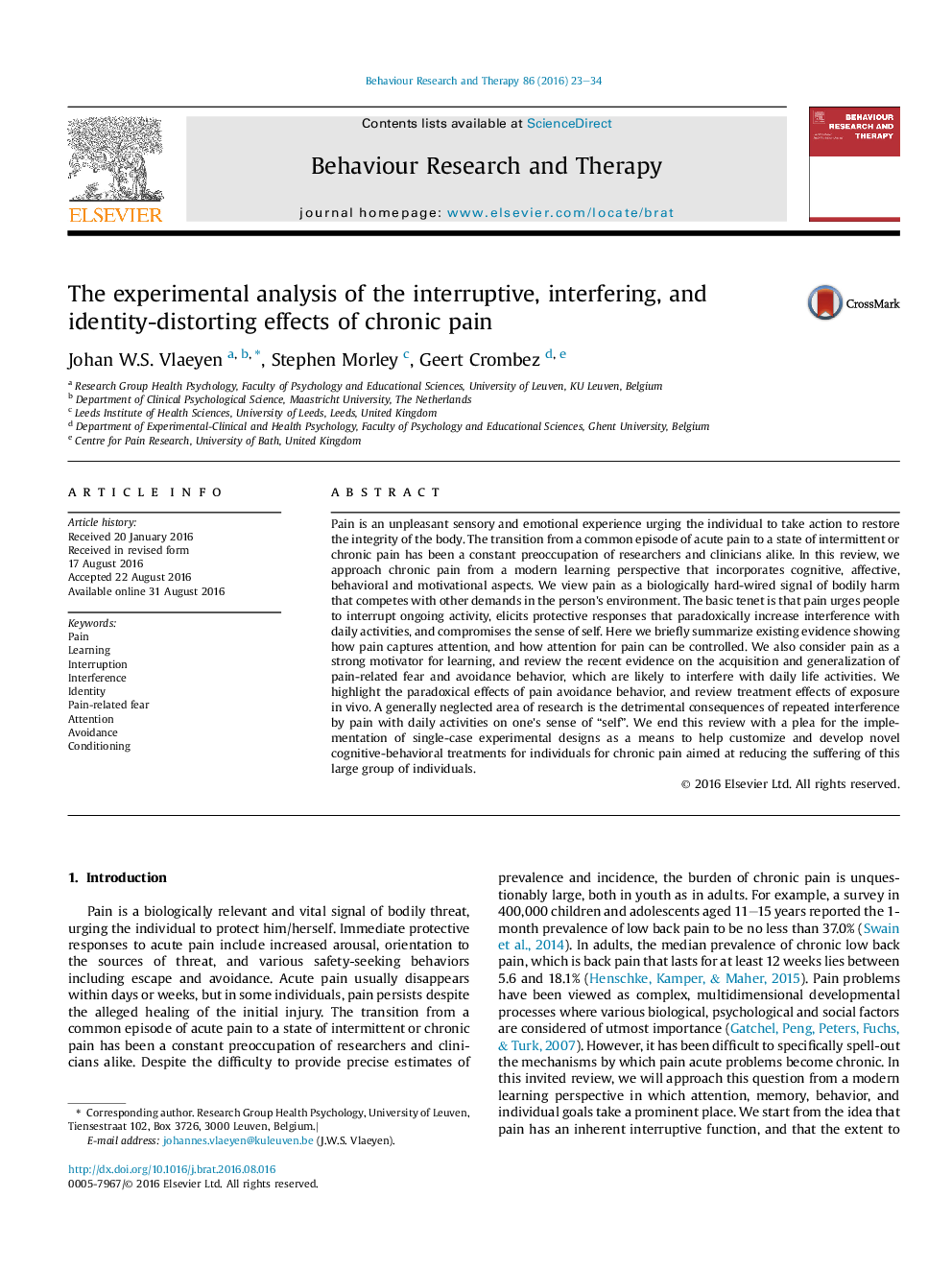| کد مقاله | کد نشریه | سال انتشار | مقاله انگلیسی | نسخه تمام متن |
|---|---|---|---|---|
| 5038335 | 1472763 | 2016 | 12 صفحه PDF | دانلود رایگان |
- Pain is an unpleasant sensory and emotional experience urging the individual to take action to restore the integrity of the body.
- Pain urges to interrupt ongoing activity, elicits protective responses that paradoxically increase interference with daily activities, and compromises the sense of self.
- Pain as a strong motivator for learning.
- Exposure in vivo can reverse the paradoxical effects of pain avoidance.
- Replicated-Single-Case designs are recommended in the search for more effective, customized treatments for individuals suffering chronic pain.
Pain is an unpleasant sensory and emotional experience urging the individual to take action to restore the integrity of the body. The transition from a common episode of acute pain to a state of intermittent or chronic pain has been a constant preoccupation of researchers and clinicians alike. In this review, we approach chronic pain from a modern learning perspective that incorporates cognitive, affective, behavioral and motivational aspects. We view pain as a biologically hard-wired signal of bodily harm that competes with other demands in the person's environment. The basic tenet is that pain urges people to interrupt ongoing activity, elicits protective responses that paradoxically increase interference with daily activities, and compromises the sense of self. Here we briefly summarize existing evidence showing how pain captures attention, and how attention for pain can be controlled. We also consider pain as a strong motivator for learning, and review the recent evidence on the acquisition and generalization of pain-related fear and avoidance behavior, which are likely to interfere with daily life activities. We highlight the paradoxical effects of pain avoidance behavior, and review treatment effects of exposure in vivo. A generally neglected area of research is the detrimental consequences of repeated interference by pain with daily activities on one's sense of “self”. We end this review with a plea for the implementation of single-case experimental designs as a means to help customize and develop novel cognitive-behavioral treatments for individuals for chronic pain aimed at reducing the suffering of this large group of individuals.
Journal: Behaviour Research and Therapy - Volume 86, November 2016, Pages 23-34
